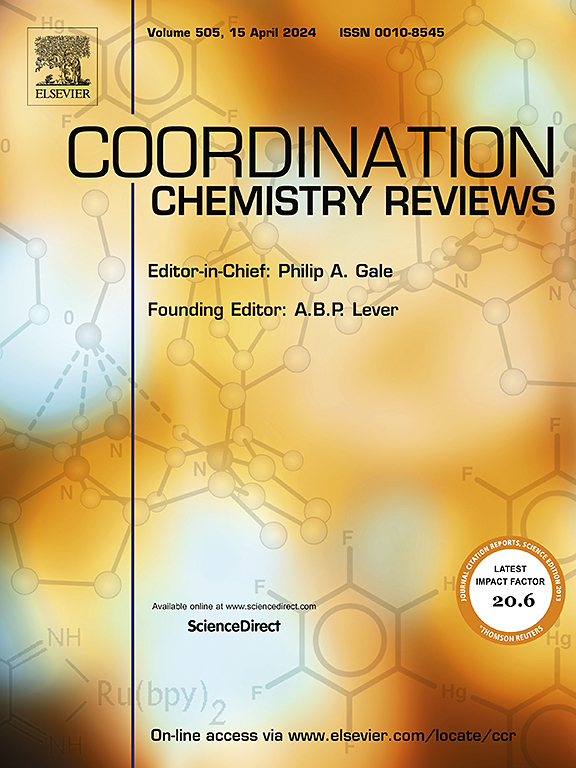Novel bio-carriers for radionuclide delivery in cancer radiotherapy
IF 20.3
1区 化学
Q1 CHEMISTRY, INORGANIC & NUCLEAR
引用次数: 0
Abstract
Internal radionuclide therapy (IRT) is a crucial component of cancer radiotherapy, focusing on delivering radionuclides to the tumor site via an optimal carrier and using high-energy radiation (including α particles, β particles, γ rays, and Auger electrons) to kill tumor cells. To further enhance the efficacy and safety of IRT, developing new bio-carriers to optimize the stable and efficient labelling, targeting delivery efficiency, biosafety, and multi-functionality of radionuclides has become a current research focus. In this review, we first briefly revisit the commonly used radionuclide delivery carriers in clinical practice, including antibodies, peptides, microspheres, and discuss their associated challenges. Subsequently, we focus on the development and research progress of novel bio-carriers, analyzing their roles and mechanisms in optimizing radionuclide labelling, delivery, and enhancing the efficacy of IRT. Finally, the review provides insights into the existing challenges faced in the field and suggests potential future research directions. Our work aims to advance the use of radionuclides in cancer radiotherapy with innovative bio-carriers, offering theoretical support and a vision for developing highly multifunctional and clinically useful bio-carriers.

求助全文
约1分钟内获得全文
求助全文
来源期刊

Coordination Chemistry Reviews
化学-无机化学与核化学
CiteScore
34.30
自引率
5.30%
发文量
457
审稿时长
54 days
期刊介绍:
Coordination Chemistry Reviews offers rapid publication of review articles on current and significant topics in coordination chemistry, encompassing organometallic, supramolecular, theoretical, and bioinorganic chemistry. It also covers catalysis, materials chemistry, and metal-organic frameworks from a coordination chemistry perspective. Reviews summarize recent developments or discuss specific techniques, welcoming contributions from both established and emerging researchers.
The journal releases special issues on timely subjects, including those featuring contributions from specific regions or conferences. Occasional full-length book articles are also featured. Additionally, special volumes cover annual reviews of main group chemistry, transition metal group chemistry, and organometallic chemistry. These comprehensive reviews are vital resources for those engaged in coordination chemistry, further establishing Coordination Chemistry Reviews as a hub for insightful surveys in inorganic and physical inorganic chemistry.
 求助内容:
求助内容: 应助结果提醒方式:
应助结果提醒方式:


